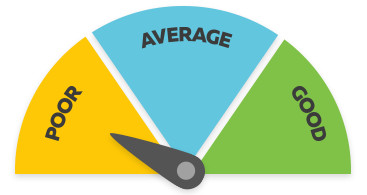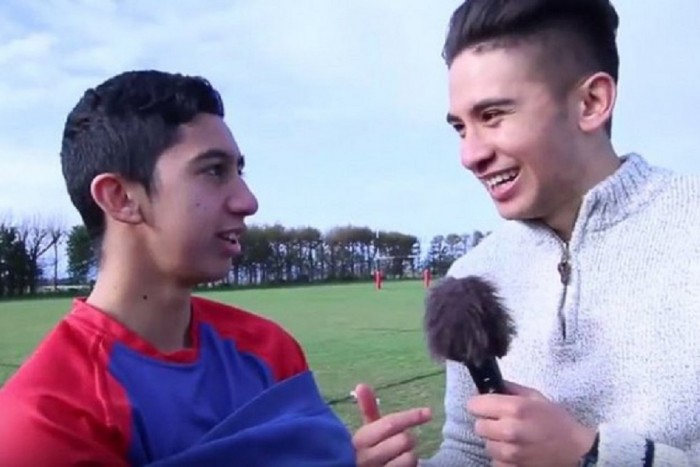Television Presenter
Kaipānui Pouaka Whakaata
Alternative titles for this job
Television presenters introduce, present or host programmes on television.
Pay
Pay for television presenters varies depending on their profile, experience and responsibility.
Job opportunities
Pay
Pay for television presenters varies depending on their profile, experience and responsibility. Many television presenters are employed on short-term contracts and only work part time.
(This information is a guide only. Find out more about the sources of our pay information)
What you will do
Television presenters may do some or all of the following:
- host game shows, current affairs, sports, arts or educational programmes
- read news, sports or weather reports
- interview people
- report on issues and events
- run social media accounts
- research and write scripts
- attend production meetings
- attend promotional events, conferences and social functions.
Skills and knowledge
Television presenters need to have:
- good interviewing skills
- good knowledge of their area of specialisation – such as sports or current affairs
- knowledge of the television production process.
Working conditions
Television presenters:
- may work irregular hours including early mornings, evenings and weekends
- work in offices, television studios and on location
- work in conditions that may be stressful due to deadlines
- may have to travel locally and overseas to cover stories or complete location shoots.
What's the job really like?
Television presenter video
Sonny Ngatai talks about what it takes to be a television presenter – 2.01 mins. (Video courtesy of Oompher)
Sonny: Woo!
Sonny: When I first thought of presenters, I thought that they were given their lines to do, then they sit on the couch and the famous person walks in, they read their lines, have a good conversation then that’s it.
Johnson: Oh some still do that. [Both laugh.]
Sonny: But there’s actually a lot of work that goes behind it, you have to learn your scripts, you have to research someone. You have to really understand them before you even meet them, you have to almost know them better than they know themselves.
Sonny: Kia ora koutou! Nau mai hoki mai ki Hahana! Ki tēnei hōtaka tino motuhake!
Sonny: When I was about to leave school, I wanted to be a doctor. You know being a doctor was my biggest dream. So then I did everything, I signed up, got everything all planned out then I went to university and did my first year and I hated it! Absolutely did not enjoy. And in between that I had shoots for the web show. Any time I get any message from Vicky about “aww can you write us this or, we have a shoot coming up, are you available for? Anything like that it would give me the BIGGEST smile on my face. And I knew from there that being a doctor just wasn’t for me. I’ve come to look at this as a spectrum. The biggest highlight of my life so far was being able to make that decision and have the opportunity to be on a TV show.
Sonny: Kia ora! Here are my five tips to becoming a TV presenter. Tip number one: copy other presenters. Tip number two: if you’re serious about being a presenter, make a show reel or an audition tape. Tip number three: take every opportunity. Every opportunity that comes knocking on your door, take it and don’t be afraid. Tip number four: manners. Always be nice, no one likes a stink guy. Tip number five: get a CV and send it out. Employers love keen beans.
Entry requirements
There are no specific requirements to become a television presenter, but a good level of spoken English or te reo Māori is essential.
A qualification in television, film, or journalism is preferred by most employers.
A full driver's licence is usually preferred, as television presenters may have to travel to locations for filming that are not accessible by public transport.
Secondary education
There are no specific secondary education requirements to become a television presenter. However, media studies, music, dance and drama, ngā toi, te reo Māori and English are useful.
Personal requirements
Television presenters need to be:
- confident and relaxed on television
- able to work well under pressure
- able to accept criticism, and follow instructions
- able to relate to people from a wide range of cultures
- good communicators
- good planners and organisers.
Useful experience
Useful experience includes:
- work as a radio announcer or journalist
- experience in theatre, film, television or radio
- drama or speech training.
Physical requirements
Television presenters should have clear speech and an expressive voice.
Find out more about training
- New Zealand Broadcasting School
- 0800 24 24 76 – www.ara.ac.nz
- New Zealand Film & Television School
- 04 237 3100 – info.nzfilmschool@whitireia.ac.nz – www.filmschool.org.nz
- South Seas Film & Television School
- 09 444 3253 – info@southseas.co.nz – www.southseas.co.nz
What are the chances of getting a job?
High competition for jobs and low turnover
Competition for television presenter jobs is high because there are more students graduating with film and television qualifications than the number of vacancies available.
Television presenters tend to stay in the job for a long time so there are few new positions.
According to the Census, 210 television presenters worked in New Zealand in 2018.
Increased job chances with a broad range of skills and experience, and a social media following
The more multi-skilled you are, the higher the chance you have of securing work in television. Few people work full time as television presenters, most work part time and do other television-related work as well. For example, they may work in roles such as journalism, producing, editing, acting, directing, make-up and wardrobe and technical support.
Any acting and film directing experience, for example in the 48-hour film festival, is helpful and should be included in a portfolio to show potential employers. It's sometimes possible to get into the industry by presenting a web series or YouTube channel and creating an online social media presence with a large following. Being a subject matter expert for presenting specific subjects is also useful.
Television presenters work in public and private companies
Television presenters usually work for:
- Māori television
- TVNZ, New Zealand's state broadcaster
- private broadcasting companies such as MediaWorks
- television production companies.
Sources
- Givins, J, head of department, Onscreen Acting Diploma, South Seas Film and Television School, careers.govt.nz interview, December 2017.
- Raela, J, Oompher presenter, careers.govt.nz interview, July 2017.
- Stats NZ, '2018 Census Data', 2019.
(This information is a guide only. Find out more about the sources of our job opportunities information)
Progression and specialisations
Television presenters may specialise in areas such as:
- sports commentary
- current affairs
- news
- children's television.
Last updated 17 May 2021

